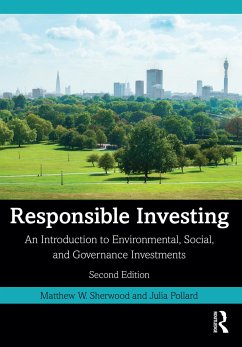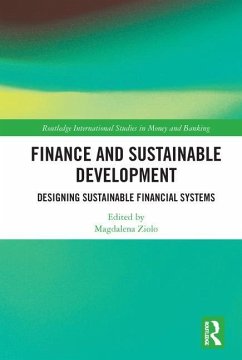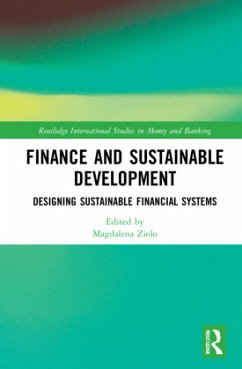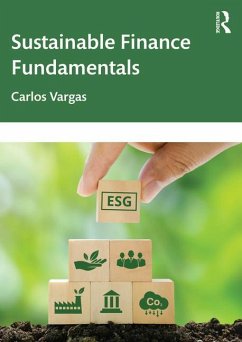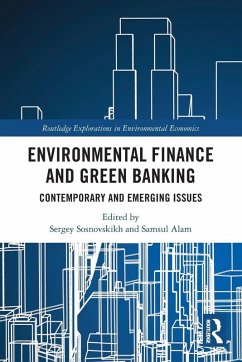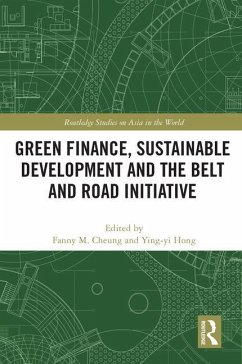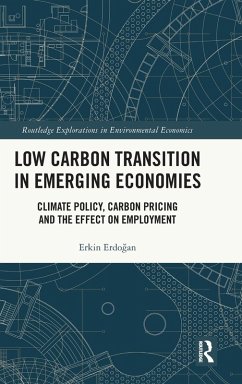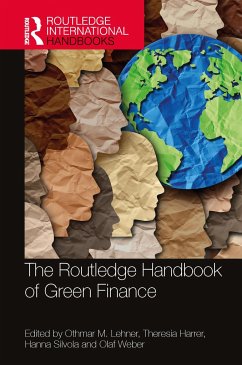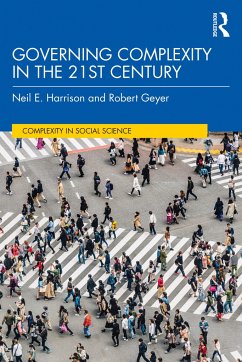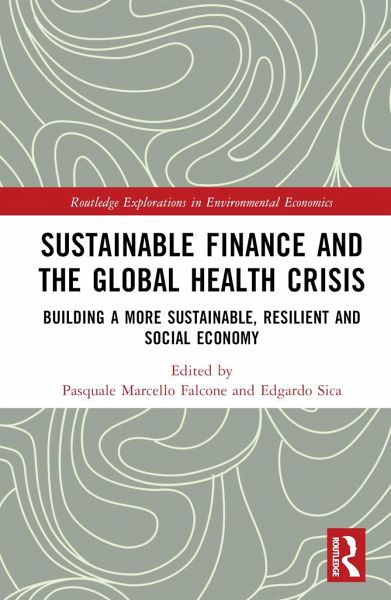
Sustainable Finance and the Global Health Crisis
Versandkostenfrei!
Versandfertig in 6-10 Tagen
154,99 €
inkl. MwSt.

PAYBACK Punkte
77 °P sammeln!
The speed with which the various economies recover from the Covid-19 pandemic will significantly determine the economic pressure placed on the environment in the medium-to-long-term. Furthermore, the pandemic has highlighted the strong interrelations between natural and societal systems, with societal resilience depending on a resilient environmental support system. In this context, the book argues that the pandemic represents a wake-up call for financial systems to be better prepared for the climate crisis and social risk, and has provided a stimulus to scale down the reliance of the global e...
The speed with which the various economies recover from the Covid-19 pandemic will significantly determine the economic pressure placed on the environment in the medium-to-long-term. Furthermore, the pandemic has highlighted the strong interrelations between natural and societal systems, with societal resilience depending on a resilient environmental support system. In this context, the book argues that the pandemic represents a wake-up call for financial systems to be better prepared for the climate crisis and social risk, and has provided a stimulus to scale down the reliance of the global economy on fossil fuels. The first part of the book provides a deep and creative discussion between leading international researchers and experts on the policy options and financial instruments which can help to catalyze the green finance transition in the post-Covid-19 era. The contributions show that sustainable finance is emerging as a powerful tool to advance the transition towards a more environmentally and socially sustainable economic model. Instruments such as sovereign green bonds, green securities, and other sustainability-related securities can play a significant role in the post-Covid-19 world to fund economic stimulus and to lead the way to new and more sustainable future. The second part of the book supports the debate by highlighting a number of selected case studies on financing transitions in different regional contexts including Africa, Asia, Europe, and Latin America. The book marks a significant contribution to the literature on environmental economics and finance, climate change, and sustainability transitions.
Chapter 12 of this book is freely available as a downloadable Open Access PDF at http://www.taylorfrancis.com under a Creative Commons Attribution-Non Commercial-No Derivatives (CC-BY-NC-ND) 4.0 license.
Chapter 12 of this book is freely available as a downloadable Open Access PDF at http://www.taylorfrancis.com under a Creative Commons Attribution-Non Commercial-No Derivatives (CC-BY-NC-ND) 4.0 license.




